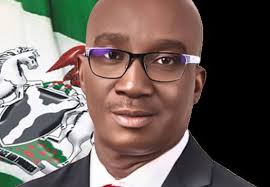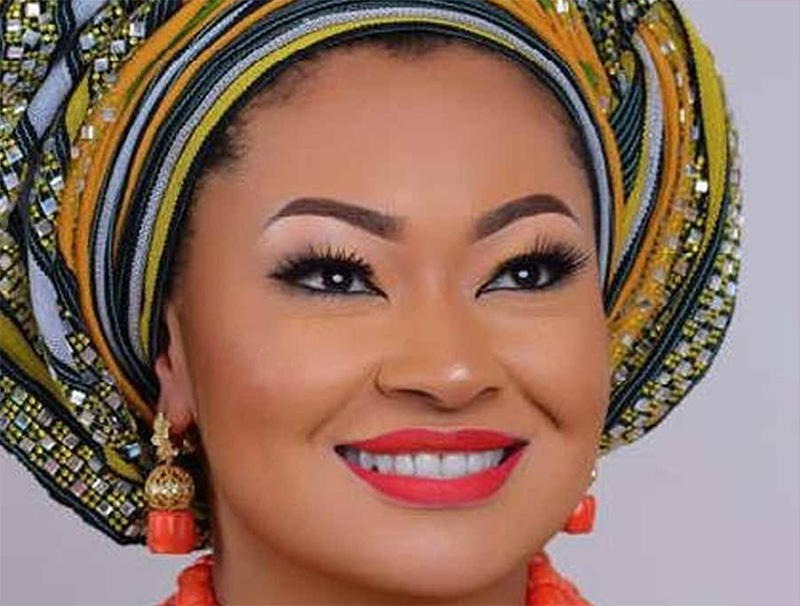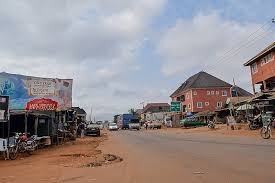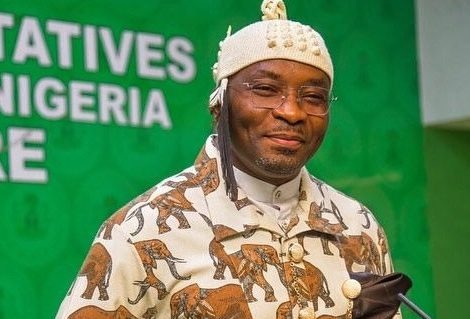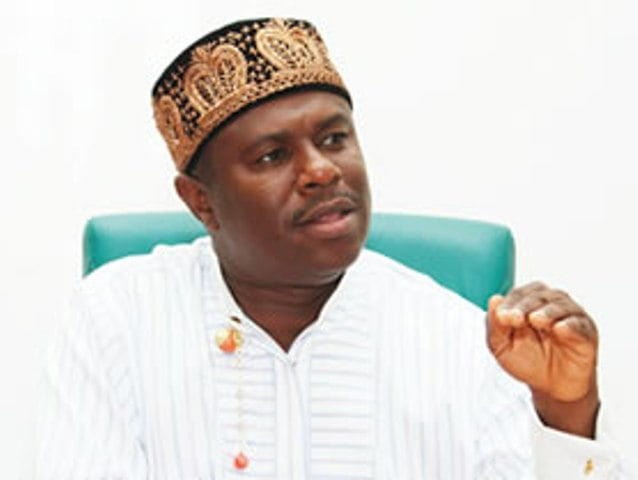Our universities were established as engines of progress. Today, however, we face problems highlighting a disconnect between academia and everyday life. These problems arise not from a lack of intellect but from a misalignment with society’s needs, as teaching and learning have long been measured solely by academic metrics—the length of dissertations, the complexity of theories, and the splendor of research—rather than their real-world impact.
The challenge before us is clear: our universities must move beyond theory to practical impact, bringing the “gown” into the “town”—and now, into cyberspace—where knowledge is applied and ideas ignite change. In his seminal book, The School and Society, John Dewey emphasizes the need for education to evolve in tandem with societal changes, cautioning against outdated teaching methods that fail to prepare students for future challenges.
The true measure of education is its impact on the town. How many university projects directly tackle local challenges like power, healthcare, water access, food security, or transportation? If universities do not first serve their own communities, their achievements risk remaining confined to ivory towers. Our research must offer tangible solutions, while graduates must be equipped to address real issues, from policy refinement to sustainable transportation. If the town does not feel the impact of our “gown”, our education is incomplete.
Our universities are more than centres of learning; they are the backbone of our communities and nation. Their value lies not in certificates but in real-world impact. Institutions must go beyond academic debates, producing research that shapes policies proactively rather than reacting to crises. They should serve as policy hubs, not just locally but globally, proving that when education meets innovation, solutions follow.
Sir Ken Robinson emphasized the significance of creativity in education, asserting: “Creativity is as important in education as literacy, and we should treat it with the same status.” It is time for our curricula to leap. Agriculture students must master drone mapping for pest control. Medical schools should integrate telemedicine and AI. Law faculties must adopt blockchain for land registry reforms. Engineering students must embrace robotics, and so on. When the gown mirrors the town’s needs, productivity follows.
When we bridge the gap between academia and society, universities can drive national progress while contributing meaningfully to global knowledge. The question before us is simple: Will our universities shape the future or merely react to it? The answer lies in our collective commitment to innovation, sustainability, and purpose-driven education. But to shape the future, we must first understand how education itself has evolved.
The Evolution of Education: Preparing for the Future
Historically, education has been the bedrock of human civilization, evolving alongside societal needs. From the oral traditions of ancient Africa, where griots preserved history through storytelling, to the grand libraries of Alexandria, knowledge has always been the currency of progress.
The evolution of education has always mirrored societal needs. In ancient times, learning was an elite privilege, with Socrates, Plato, and Confucius imparting wisdom to select disciples. The Industrial Revolution (1760–1840) introduced mass education, designed to produce factory workers for a structured economy. The 20th century brought standardised testing and mass schooling, a model that still dominates universities today. But in an era of AI and rapid digital transformation, can this outdated system truly prepare students for the future, or are we training them for a world that no longer exists?
The evolution of work is evidence of how education must constantly adapt. Many jobs that once defined entire industries have vanished. Telephone switchboard operators of the 1950s and ’60s were replaced by automated systems, just as video store clerks disappeared with Netflix and digital streaming. Typists became obsolete with word processors, and newspaper typesetters lost relevance to digital publishing. Kodak, a giant in the photography industry, exemplifies this shift; it employed 145,000 people in 1988 but filed for bankruptcy in 2012 after failing to adapt to the digital revolution.
Also, the way Nigerians consume news has undergone a seismic shift. Decades ago, families gathered around their television sets at 9 pm to watch the NTA Network News, waiting for the official version of events. Today, social media delivers news instantly—often unverified and sensationalised. This has fuelled citizen journalism, blurring the line between fact and fiction. Traditional media houses like have adapted by embracing live streaming and digital platforms, but the transition has not been smooth. Misinformation spreads faster than ever, with AI-generated deepfakes compounding the crisis. A 2022 report by the Centre for Democracy and Development found that over 75 per cent of Nigerians had encountered false information online.
This, I believe, is because universities have not taken their place as the primary defenders of truth in the digital space. Journalism and mass communication programmes must evolve to train fact-checkers, digital forensics experts, and AI-literate media professionals.
Today, AI and automation are reshaping industries. Reports from the World Economic Forum estimate that 85 million jobs will be displaced by AI by 2025, but 97 million new roles will emerge in fields like AI ethics, cybersecurity, and sustainability. Just three years ago, prompt engineering (the skill of instructing AI such as ChatGPT) was unheard of—now it’s a lucrative profession. Yet, many universities have not fully adapted.
By 2030, industries will demand AI specialists to drive automation, data privacy consultants to tackle AI ethical concerns, climate adaptation experts to address environmental crises, Virtual Reality designers to shape the metaverse, biotechnology engineers to merge AI with medicine, and digital well-being coaches to mitigate social media’s psychological effects. Yet, how many Nigerian universities are equipping students for these roles, and how many lecturers are being retrained to understand these shifts?
Education must be lifelong. In my own experience, when I was in school, we had only a handful of computers. We used typewriters, not laptops. Today, I am still learning, still evolving. If we expect students to prepare for the future, our educators must also be students themselves. As Alvin Toffler wisely said: “The illiterate of the 21st century will not be those who cannot read and write, but those who cannot learn, unlearn, and relearn.”
Education is not merely about acquiring knowledge; it is about applying it to shape the future. If our universities fail to adapt, we risk producing graduates unprepared for the world they will inherit.
This is not only applicable in Nigeria; around the world, universities are redefining their roles by aligning research with community needs, and here are a few examples:
MIT’s D-Lab: At the Massachusetts Institute of Technology, the D-Lab initiative has reached over 30 countries, developing low-cost technologies that empower rural communities. By training students to devise sustainable solutions—from solar-powered irrigation systems to low-cost medical devices—MIT has demonstrated that academic excellence and community impact can go hand in hand.
Stanford and Silicon Valley: Stanford University is not only a hub of academic innovation but also a critical driver of economic development in Silicon Valley.
With its StartX accelerator, Stanford has helped launch over 200 startups whose collective venture capital funding exceeds $10 billion. This integration of entrepreneurial spirit with academic research has transformed local communities and set a global benchmark for service exports.
University of Cape Town (UCT): In South Africa, UCT’s Water Research Commission works directly with local municipalities to improve water management. Their projects have directly benefited over a million people by developing strategies to combat water scarcity and improve sanitation—illustrating the direct social impact of focused, community-oriented research.
Indian Institutes of Technology (IITs): In India, IITs have created incubators that have catalyzed more than 500 startups, generating billions of dollars in revenue. Their approach has not only enhanced local agricultural productivity through smart farming techniques, but also positioned India as a major exporter of technical expertise and services.
Wageningen University: In the Netherlands, Wageningen University’s cutting-edge agricultural research has been instrumental in boosting yields for smallholder farmers globally, underscoring the power of targeted research in solving real-world food security challenges.
These examples make it clear: when universities adapt their “gown” to meet the needs of their communities, innovation flourishes, and local challenges become opportunities for transformative change.
(The Gown in Cyberspace: Education Without Borders [The Digital Awakening])
In 2025, technology enables a child in Aba to watch a robotics lecture from MIT on a solar-powered tablet—a powerful bridge between global innovation and local opportunity. Yet, many of our universities still rely on outdated methods and curricula. This is not merely a technological gap; it is an urgent call to harness the digital revolution.
Over the past two decades, digital learning initiatives have significantly expanded global education access. According to a UNESCO report, the number of students enrolled in Massive Open Online Courses (MOOCs) surged from zero in 2012 to at least 220 million in 2021. Additionally, since the onset of the COVID-19 pandemic, more than 1.5 billion students worldwide have transitioned to online education. In its report, the World Economic Forum (WEF) identified Information and Communication Technology (ICT) literacy as one of the foundational literacies essential for the 21st century. These statistics are not just numbers—they outline a roadmap for our collective future. As science fiction author, William Gibson once said, “The future is already here – it’s just not evenly distributed.”
The time has come to stop trailing behind and start leading; we must rise to our full potential, transform education, and ensure that every Nigerian youth has the power to shape the future.
We must transform our educational institutions by integrating real-time data analytics, virtual labs, and interactive platforms, ensuring our graduates are prepared to lead in an interconnected world. Our classrooms should evolve into innovation hubs where ideas seamlessly bridge theory and practice. We must empower our youth not just to adapt to the future but to create it. This is our awakening—a decisive moment to harness the boundless potential of education.
While progress is underway, several high-potential areas require urgent attention from our universities. Here are a few critical areas where we must drive change:
(Gender Equality in Education: Empowering Women, Empowering Nations)
As we set our sights on Agenda 2075, it is time to rethink our approach to quotas in higher education. For the past five decades, admissions in Nigerian Universities have largely been determined by geography, a system that, while addressing regional disparities, has done little to harness the untapped potential of our female students. Instead of geographic quotas, we must prioritize gender parity to increase women’s participation in governance and leadership. Our quota system should serve as a tool for empowerment, ensuring that women—already the backbone of our homes as chief executive officers—step confidently into boardrooms and decision-making centers.
Research led by IDRC partners in South Africa and Ethiopia reveals critical disparities in STEM fields across African universities. Studies from 60 institutions in eight nations highlight that women are more likely to drop out of STEM programs and face persistent microaggressions. Meanwhile, many institutions lack or fail to implement gender-focused policies. UNESCO data tells us that female enrollment in tertiary education in sub-Saharan Africa is around 40%, while only 24% of academic staff are women—a gap that further widens at the professoriate level. In Ghana, for example, only 8% of professors in public universities are female, and the African Evidence Research Database shows that just 32% of researchers are women.
Yet the returns to investing in women’s education are compelling. A 2018 World Bank report notes that the private returns to education are 12% for women compared to 10% for men, and in post-secondary education, 17% for women versus 15% for men. These statistics affirm that education is not only a sound investment but a catalyst for societal transformation. When women are given equal opportunities, they bring unique insights and approaches that drive innovation, address local challenges, and foster inclusive governance.
The current constitutional review—an effort I am proud to be at the forefront of—seeks to redress these imbalances in a meaningful and lasting way. As the sponsor of the Seat Reservation Bill, I have championed legislative action to increase women’s representation in governance, ensuring that they are not just participants but key decision-makers in shaping our nation’s future. Alongside this, other targeted initiatives are being pursued to dismantle systemic barriers that have long sidelined women in leadership and education.
However, the success of these measures depends on more than just policy—it requires a societal shift in mindset. It depends on our ability to energize and empower women equally and equitably. We must move beyond the “other room” mindset and embrace a boardroom mentality for women. They must not be confined to supporting roles; they must be in the rooms where policies are shaped, economies are driven, and the future of our towns, our technologies, and our nation is decided.
Our collective future hinges on harnessing the full potential of every citizen. As we prioritize gender parity in education, we create a dynamic, innovative society where we can thrive through the transformative power of inclusive, forward-thinking leadership.
(Mining and the Future of Education: Unlocking Nigeria’s Wealth Beneath the Ground)
To build a truly prosperous nation, we must align our educational priorities with the resources that define our economic potential. One such opportunity lies beneath our feet. Nigeria is abundantly blessed with solid minerals, yet for decades, our education system has focused more on theoretical disciplines than on harnessing the country’s vast natural wealth.
The North Central region holds significant deposits of tin, columbite, tantalite, and barite, all critical for modern electronics and industrial applications. The North West is home to gold, granite, and limestone, offering vast potential for the jewelry and construction industries. In the North East, gypsum, kaolin, and bentonite remain largely untapped, despite their importance to cement production and pharmaceuticals. The South West boasts reserves of bitumen, feldspar, and lithium—minerals essential for road construction and battery technologies, while the South East is rich in lead, zinc, coal, and also shares in the oil and gas reserves that have historically defined the nation’s economy. The South South, beyond its dominance in oil and gas, possesses large deposits of limestone, clay, and rare earth elements, which have yet to be fully explored.
Despite this natural endowment, Nigeria remains a net importer of many refined mineral products. The mining sector, despite its vast potential, contributed only 0.3% to Nigeria’s GDP in Q3 2022, according to KPMG—an increase from the 0.2% recorded in Q3 2021, but still far below its capacity to drive economic transformation. The gap between what we have and what we gain from it highlights a crucial flaw in our educational system. Few universities dedicate faculties to mining, mineral processing, or extractive metallurgy. Research into value addition, refining, and sustainable mining practices remains minimal. If our goal is to make education in 2075 more impactful and productivity-driven, then it must align with the needs of the nation, ensuring that the abundant resources beneath our feet become a catalyst for industrialization and economic prosperity.
This administration has made commendable strides in repositioning the mining sector. The amendment of mining laws has created a more attractive environment for investment and responsible exploration. The establishment of the Nigerian Mining Commission ensures regulatory compliance and strategic mineral development, while the recently launched Mining Fund is set to support small-scale miners and encourage local value addition. These policy changes will remain mere documents, however, unless we develop the necessary human capital to drive them.
Countries like China and Germany have long integrated mining into their national education strategies, producing engineers, geologists, and mineral economists equipped to transform their economies. For instance, Germany’s Freiberg University of Mining and Technology, established in 1765, is one of the world’s oldest universities dedicated to mining sciences. China’s integration of mining education has fueled its industrial growth—Nigeria must do the same. Universities should establish specialized faculties, collaborate with industry leaders, and offer hands-on training in mining and mineral processing. Making technical education accessible in local languages will boost participation. A strong mining education system will create jobs, drive industrialization, and shift Nigeria from raw mineral exports to local processing, strengthening key industries.
(Unlocking Nigeria’s Blue Economy: Education as the Key to Maritime Prosperity)
Just as Nigeria’s wealth lies beneath the ground, it also stretches across our vast coastline—an untapped economic powerhouse. The Blue Economy, which leverages ocean and water resources for sustainable growth, remains one of our most promising yet underdeveloped sectors.
With over 853 kilometers of coastline and 200 nautical miles of exclusive economic zone, Nigeria is strategically positioned to leverage its vast maritime resources. According to a study by Owoputi Adetose Emmanuel, Nigeria’s inland waterways cover approximately 149,919 square kilometers, constituting about 15.9% of the country’s total area, which, if properly harnessed, could revolutionize trade, transportation, fisheries, tourism, and energy generation.
Despite these immense opportunities, the sector remains largely untapped due to insufficient investment, inadequate infrastructure, and a lack of specialized knowledge. According to the United Nations Environment Programme (UNEP), Africa’s marine and coastal tourism sector has the potential to generate over $100 billion in revenue by 2030. Additionally, projections indicate that the continent’s blue economy could yield $576 billion annually and create 127 million jobs by 2063.
Yet, Nigeria’s maritime assets remain underutilized. Our ports are clustered in Lagos, strangling trade and inflating prices. Why are maritime students not modeling the economic impact of a decentralized port system? Why aren’t logistics departments partnering with fishing communities in nearby Bakassi and Oron to design cold-chain networks? If tomatoes rot in traffic jams heading to Apapa, that’s a 40% price hike in Kano markets—a problem the gown can solve with data and policy blueprints.
Nigeria’s Blue Economy holds vast potential, but its universities must lead in developing sector-specific expertise. How many institutions offer maritime studies, oceanography, or marine engineering? How many research centers focus on marine conservation, coastal management, or offshore renewable energy? Without aligning education with national priorities, we risk losing an industry crucial to economic diversification, job creation, and food security.
As we advance toward Agenda 2075, education must evolve to include hydrospace studies alongside town and cyberspace development. The future lies not only on land or in digital frontiers but also in the wealth of our waters. Our universities must rise to the challenge, producing the maritime economists, marine scientists, and naval architects who will position Nigeria as a leader in Africa’s Blue Economy.
(Power and Industrialization)
Despite the immense potential of our Blue Economy, sustainable growth cannot happen without a stable power supply. No economy—whether maritime, digital, or industrial—can thrive in darkness. Reliable electricity is the backbone of development, yet communities remain trapped in cycles of blackouts, and industries in the South-South and South-East struggle for gas.
The Electricity Act of 2023 was a watershed moment—a law that unbundled power generation, transmission, and distribution from the exclusive to the concurrent list, et implementation gaps persist. Gas distribution infrastructure remains skeletal, stalling industrialization.
Imagine undergraduates in engineering and economics collaborating to map pipeline routes using geospatial AI. Picture law students drafting frameworks for public-private partnerships to fund infrastructure. This is the gown’s role: to turn legislation into lightbulbs.
But as we power industries and expand infrastructure, we must do so with sustainability at the core. Energy without environmental responsibility is a short-term fix with long-term consequences.
(The Climate Imperative: No Green Futures Without Green Minds)
Nigeria faces significant environmental challenges, including increasing temperatures, rainfall variability, droughts, desertification, rising sea levels, and more frequent extreme weather events. These issues have led to biodiversity loss, reduced food and water security, increased poverty, and negative health outcomes. In 2024, severe floods affected over 9 million Nigerians and destroyed over 1.5 million hectares of cropland, exacerbating food insecurity. With 25 million already affected, this number is projected to rise to 33 million by late 2025.
From the floods in Maiduguri to the gully erosion devastating communities in the South East and Akwa Ibom, these crises highlight the urgent need for environmental education. Yet, few Nigerian universities have fully integrated renewable energy studies or the realities of local environmental challenges into their curricula.
Despite climate change and resource depletion, how many final-year projects address these urgent challenges? Our universities should be developing solutions for flood-prone communities and helping farmers adapt. Imagine a microbiology graduate pioneering biogas energy from waste. This vision underscores the role of every discipline—from Philosophy to Computer Science, Engineering to Medicine, Architecture to Art—in addressing real-world problems. True academic success lies not just in GPAs or publications but in meaningful societal impact.
Across the world, universities have committed to sustainability initiatives, as seen in the Talloires Declaration, a ten-point action plan to integrate environmental literacy and sustainability into teaching, research, and operations. As of 2017, over 500 universities from 55 countries have signed this declaration, signaling a global commitment to sustainable development. Nigerian universities must take their place in this movement—not just by teaching sustainability, but by embedding it in their institutional DNA. If universities are to be true catalysts for change, should their impact not be measured by how well they advance the goals that define progress?
(Sustainable Development Goals and the Role of Universities)
Universities must take the lead in translating national ambitions into tangible progress by aligning research, innovation, and policy engagement with the Sustainable Development Goals (SDGs). As centers of knowledge creation, they have a responsibility to drive solutions that foster inclusive growth, sustainability, and resilience.
Education and Workforce Development (SDG 4 & SDG 8): Expanding access to education must go hand in hand with improving quality. Universities should foster public-private partnerships to enhance hostel capacity, recruit STEM lecturers, and introduce flexible learning models such as evening and online courses.
Healthcare Innovation (SDG 3): Medical institutions must incorporate AI-assisted diagnostics, telemedicine, and vaccine research to align with Nigeria’s healthcare revitalization goals.
Agricultural Transformation (SDG 2 & SDG 9): Faculties of agriculture should drive AI-powered precision farming, drought-resistant crops, and climate-smart practices to strengthen food security.
Tech-Based Job Creation (SDG 8 & SDG 9): Universities must equip students with expertise in coding, blockchain, robotics, and cybersecurity to prepare them for the digital economy.
Looking ahead to 2075, the question remains: Are our universities shaping the future or merely reacting to it? The institutions that embed themselves within national development strategies will produce graduates who do not just seek jobs but create them—who do not just consume knowledge but generate it. This vision of universities as engines of innovation aligns with national efforts to expand opportunities for all, ensuring that education remains a powerful tool for economic mobility and social progress.
(President Tinubu’s Renewed Hope Agenda: Democratizing Access Through the Student Loans Act)
President Tinubu’s Renewed Hope Agenda envisions a future driven by economic growth, infrastructure, healthcare, agriculture, and digital innovation. As the President aptly stated, “Education is that light at the end of the tunnel; no matter how sluggish you move, it will give you the light and the hope.” I couldn’t agree more. Education is the great equalizer—the bridge between potential and progress—yet financial barriers have long kept many talented Nigerians from reaching it.
On April 3 2024, President Tinubu signed the Student Loans (Access to Higher Education) Act, a transformative policy designed to remove economic obstacles. This Act provides interest-free loans repayable only after employment, with special provisions for the disadvantaged, ensuring that every capable student has a fair chance to succeed.
Consider the remarkable progress made by the Nigerian Education Loan Fund (NELFUND), which disbursed ?23 billion in loans to 94,000 students in 2023. This milestone has not only improved access to education but also reaffirmed our commitment to empowering our youth. As new development commissions prepare their budgets, prioritizing education must be at the forefront. We must finance short, impactful programs in carpentry, plumbing, electrical engineering, and other trades to address the glaring gap in local expertise. By doing so, we create a workforce capable of transforming our towns and propelling Nigeria toward global competitiveness.
Distinguished guests, here are the facts: In 2024, the federal budget allocated ?1.54 trillion to education. This amount is higher than the N1.08 trillion the education ministry received in the 2023 budget. For the recently passed and signed 2025 federal budget, ?2.52 trillion is allocated to education, a 133.33% increase in educational investments before his presidency.
As Nigeria advances with President Tinubu’s Renewed Hope Agenda, education stands as the foundation for sustainable development, aligning with the United Nations Sustainable Development Goals (SDGs) and the African Union’s continental frameworks. In my role as Chairman of the Committee on Monetary and Financial Affairs at the Pan African Parliament (PAP) and Chairman of Finance, Budget & Administration at the ECOWAS Parliament, I have seen how strategic investments in education drive transformative change across our continent.
My experience, including serving on the Steering Committee of the Parliamentary Conference on the World Trade Organization (PCWTO), reinforces the urgent need for sustainable educational financing to secure our future. The removal of external funding sources like USAID has underscored the importance of looking inward. Our government’s efforts to reduce foreign debt must be complemented by domestic investment in education.
Kofi Annan, the former Secretary-General of the United Nations, emphasized the transformative power of education during his address at the World Bank Conference in 1997, stating: “Knowledge is power. Information is liberating. Education is the premise of progress, in every society, in every family.” Our mission is to produce graduates who excel academically and can export world-class services, much like India’s global talent strategy. By equipping students for cyberspace, we position them as ambassadors of innovation, driving Nigeria’s service and knowledge exports. Aligning with the SDGs and the African Union’s framework reinforces our commitment to regional integration.
(The Triple Helix Mandate: A Cyberspace Covenant for Innovation)
Distinguished guests, I propose a transformative Triple Helix approach—uniting universities, industry, and government into a seamless engine for innovation. This model, first articulated by scholars Henry Etzkowitz and Loet Leydesdorff, teaches us that when these three pillars collaborate, boundaries blur and breakthroughs emerge. As Etzkowitz once remarked, “Innovation thrives when academia, industry, and government engage in a continuous, dynamic dialogue.”
Let us define this concept clearly: The Triple Helix is the idea that the interplay among educational institutions, private enterprises, and public policy creates a fertile ground for economic and societal advancement. Across the globe, from the robust innovation ecosystems of China and Germany to the vibrant tech hubs of Silicon Valley, this model has been key to industrial dominance.
To translate this theory into practice, we can apply the following actionable strategies:
Establish Collaborative Innovation Hubs:
Partner with technology and telecommunications companies to create centers where academic research transforms into practical solutions. These hubs could incubate startups specializing in artificial intelligence, biotechnology, agro-tech, and blue economy technologies. As Henry Chesbrough reminds us in his book, “Open innovation is the new imperative for creating and profiting from technology.”
Curriculum Reform in Partnership with Industry:
Our educational programs must evolve. By engaging industry leaders in regular curriculum updates, we can ensure that our graduates are equipped with skills relevant to today’s dynamic market. This not only bridges the gap between theory and practice but also ensures that research is closely aligned with real-world challenges.
Financial Incentives for Innovation:
We must encourage our private sector to invest in academic research by offering tax incentives. This strategy, already successful in several European nations, can further stimulate an ecosystem where innovation is rewarded and practical research flourishes.
Data-Driven Accountability:
Embrace robust analytics to track research outcomes, startup success rates, and community impact. With clear metrics, we can continuously benchmark our progress against global best practices, ensuring that our initiatives remain competitive and responsive.
Indeed, the Triple Helix approach is an actionable step in forging strong, strategic partnerships through which we can convert our universities into vibrant engines of innovation and lay down the digital covenant that not only advances academic excellence but also translates into tangible benefits for our communities and our nation.
(A Call to the Private Sector and The Cyberspace Dividend)
I urge Nigeria’s business leaders to invest in our future by supporting university programs and providing platforms for internships, apprenticeships and mentorship. Envision a future where advanced technologies, such as marine drones, are used for oil & gas pipeline infrastructure monitoring, and students earn digital rewards for solving real-world challenges. This vision is not distant—it is an urgent necessity in a rapidly evolving digital economy.
In my capacity as Deputy Speaker, I am proud to be the sponsor of the Apprenticeship Bill, an initiative inspired by the internationally renowned Igbo Apprenticeship System, widely known as the Igba-Boi Apprenticeship System. This Bill reflects our commitment to practical, hands-on learning and skill development, which are essential for addressing the immediate needs of our communities. When we blend traditional apprenticeship models with modern educational frameworks, we create a robust pathway for our students to gain invaluable industry experience, bridging the gap between academic theory and real-world application.
(Expanding Horizons: Syndicated Trainee Pathway Programs in Tech, Innovation, and Manufacturing)
Our universities must bridge academia and industry through syndicated trainee pathway programs, offering hands-on training in sectors like tech, manufacturing, and innovation. By partnering with leading firms, students gain practical experience in fields such as robotics, renewable energy, and digital media, while universities secure research funding and corporate collaboration. These initiatives go beyond job placements—they create a dynamic education system that evolves with industry needs, driving long-term national development.
The recent passage of the Nigeria Startup Act by the National Assembly presents an unparalleled opportunity for students and graduates alike. This Act is designed to catalyze innovation, nurture new business ventures, and create a thriving ecosystem for startups across the country. I call on every undergraduate and alumnus to seize this moment—leverage the resources, mentorship programs, and funding opportunities that this legislation affords. By doing so, you not only build your own future but also contribute to Nigeria’s broader transformation into a global hub of innovation and service export, much like the success story of India.
(Human-centered Education: The Soul of the Machine)
The greatest wealth of our nation is not in its natural resources, but in its human resources. Entrepreneurs who build industries, artists who shape global culture, and innovators redefining technology. Across every sector, Nigerians have made their mark on the world stage. Industrialists like Aliko Dangote have expanded Africa’s economic landscape, tech pioneers like Iyinoluwa Aboyeji are reshaping digital finance, while cultural icons like Genevieve Nnaji, Kunle Afolayan, Davido, Wizkid, and Tems have positioned Nigeria as a global creative hub. Visionary leaders like Dr. Ngozi Okonjo-Iweala at the WTO and Amina Mohammed at the UN are shaping global policy. These are just a few examples of the brilliance within our borders. Our human capital is limitless—but only if we build an education system that nurtures thinkers, innovators, and problem-solvers at every level.
Our traditional education system is failing to equip students with the skills needed for 21st-century economic growth, relying on rote memorization and outdated curricula, instead of fostering adaptability, problem-solving, and ethical leadership. Without urgent reform, our economy will be hindered—not by a lack of potential, but by a failure to nurture it. We need an education system that prepares thinkers, not just exam-writers; innovators, not just employees.
Finland’s student-centered model proves that play and creativity drive innovation. While Nigeria’s context differs, the principle remains: human-centered education creates citizens who build, not just consume. Beyond technical expertise, we must instill critical thinking, ethics, and adaptability to navigate a digital world.
Technology is only as powerful as the human minds that guide it. Machines can streamline tasks, but they lack the empathy, vision, and resilience that drive meaningful change. They may generate text, but they cannot replicate the passion of our cultural icons or the everyday strength of our communities. An algorithm can diagnose disease, but only a doctor can hold a trembling patient’s hand and offer reassurance. AI can predict economic trends, but only a leader with vision can turn data into prosperity. Technology may drive cars, but humans built the roads. Philip Emeagwali’s algorithms shaped cyberspace, yet only human empathy can govern it. Steve Jobs’ iPhone connects billions, but Ken Saro-Wiwa’s activism warns us that technology without justice is a trap.
The digital economy continues to expand, with projections indicating that virtual and augmented reality technologies alone could contribute approximately $1.5 trillion to the global economy by 2030. In Nigeria, mobile money operators, including Opay and Palmpay, processed a total of ?71.5 trillion in transactions in 2024, averaging approximately ?5.96 trillion per month. However, cybercrime remains a critical challenge, as Nigeria’s financial sector recorded losses amounting to ?42.6 billion due to fraud in Q2 2024 alone.
The digital realm now shapes every aspect of modern life, from communication and commerce to health and education. Technologies like telemedicine and digital platforms have revolutionized service delivery, making life more efficient.
But no matter how advanced technology becomes, we cannot afford to lose the human factor. It may not be as fast or as precise as machines, but it is the essence of who we are, proof that we are living, breathing beings. It is where the triune nature of humanity—spiritual, physical, and mental—converges. It is the seat of emotions, conscience, and creativity, something machines will never possess. If we fail to invest in human-centered education, we may wake up to a world that is efficient but devoid of humanity, a robotic existence stripped of the soul that makes life meaningful.
The past century showcases human ingenuity—from Einstein’s scientific breakthroughs to Mandela, Azikiwe, Awolowo, and Balewa’s leadership in governance and justice. Philosophers like Aristotle and Comte shaped thought, while legal minds like Lord Denning set standards for fairness. These achievements laid the foundation for cyberspace, now central to modern life.
Education must go beyond academics to nurture character and empathy. History should be taught as a living narrative—from the Aba Women’s Riots to local reformers’ legacies—while scholarships should reward students tackling community challenges. This balanced approach will produce well-rounded graduates ready to lead and innovate in both town and cyberspace.
(The Innovation Orchard: Growing Tomorrow’s Leaders from Today’s Beginnings)
Education has always bridged past struggles and future possibilities, and the resilience that once fueled our learning must now drive innovation in a rapidly evolving world.
Over 30 years ago, we studied without modern conveniences, yet those humble beginnings shaped our journey. I recall long hours in the Law Faculty, debating legal principles and exploring society’s complexities. Though classrooms were modest and resources scarce, these challenges built resilience and inspired us to dream beyond our circumstances.
In his book, Albert Einstein said, “Imagination is more important than knowledge,” and in those days, our imagination filled every gap left by technology. We transformed hardship into hope, and that hope propelled us to become the architects of change. Today, we are blessed with digital tools that make information as accessible as air and global connectivity that binds us together in the pursuit of progress.
As we stand on the threshold of a new era, I challenge you to envision a future where every student wields not only the power of modern innovation but the timeless strength of an unyielding mind.
Napoleon Hill once wrote, “Whatever the mind can conceive and believe, it can achieve.” Your mind is the greatest technology—capable of turning today’s challenges into tomorrow’s triumphs. Embrace every digital innovation as a stepping stone, and let your imagination lead you to create a future where education transcends boundaries, uplifts communities, and transforms society.
Let the achievements of the past be the foundation for the future. The same determination that took us from learning under a humble tree to becoming global leaders proves there are no limits to what you can achieve. Every lecture, idea, and spark of insight is a seed of possibility—where imagination and innovation make the impossible inevitable.
To shape the future, we must embrace digital advancements. Our universities must go beyond traditional learning, integrating AI, robotics, immersive reality, and blockchain into teaching, research, and problem-solving.
(A Vision for 2075: Nigeria Reborn)
I ask you now to close your eyes and imagine Nigeria in 2075. Imagine a nation where power shortages are a distant memory—where every home, every school, every business is illuminated by clean, renewable energy. The days of darkness and silent factories are over, replaced by a country alive with innovation, where industries run at full capacity, and every child can study at night without the flicker of candlelight.
Picture a Nigeria where the endless gridlocks of our cities have given way to AI-managed traffic systems, where commuting is seamless, and productivity is unbroken. No longer will we waste hours in frustration; no longer will opportunity be lost to time spent in congestion.
Now, step into a future where no Nigerian is left behind in sickness. Healthcare is no longer a privilege but a fundamental right—available at the tap of a screen, with telemedicine and AI-driven diagnostics bringing the best medical care to the most remote villages. No mother will again have to walk miles for a doctor; no child will suffer for lack of treatment.
Imagine our fields, once at the mercy of erratic rainfall, transformed by precision agriculture—where AI and satellite data guide our farmers, where no Nigerian goes to bed hungry, and where we, the breadbasket of Africa, feed not just ourselves but the world.
Picture our schools, no longer struggling with outdated books and overcrowded classrooms, but thriving as hubs of digital learning. Every student, from Kano to Calabar, has access to world-class education—where knowledge is no longer confined to the privileged few but flows freely to all who seek it. Universities are not just institutions; they are incubators of enterprise, launching the next generation of innovators, scientists, and global business leaders.
Picture classrooms where students don’t just absorb knowledge but create it—where blockchain secures academic records, AI personalizes learning, and virtual reality transforms the way history and science are taught. Imagine research hubs where Nigerian scientists develop cutting-edge solutions for climate resilience, food security, and disease eradication. Picture a nation where no child is left behind because education is seamlessly accessible, from the bustling cities to the most remote villages.
Imagine a Nigeria where our young people no longer seek opportunities abroad but create them here at home. Where our best and brightest, once forced to leave, now return—because this is where dreams are built, where tech hubs rival Silicon Valley, and where home-grown solutions drive progress. This is not a fantasy. This is our future, waiting to be claimed.
And yet, when we look around us today, we see the struggles. We see communities still in darkness, hospitals stretched beyond their limits, roads crumbling, and opportunities slipping away. But let me remind you: this is not where our story ends. Every great nation has faced its trials. Every prosperous country was once a place of struggle, of sacrifice, of visionaries who refused to accept the present as permanent.
We are those visionaries. We are the generation that will bridge the gap between what is and what must be. The Nigeria of 2075 will not build itself. We must build it—brick by brick, policy by policy, innovation by innovation. And it starts now.
It starts with ensuring every child has access to quality education. It starts with investing in research, in technology, in the limitless power of human ingenuity. It starts with leaders who do not merely dream of a better Nigeria but who dare to make it real.
Seventy-five years ago, in the heat of our independence struggle, our forebears dreamed of freedom. Today, our struggle is different, but no less urgent. Our battle is for the soul of our nation—for the right of every Nigerian to thrive, to innovate, to prosper.
And so I stand before you today, not just to paint a vision, but to issue a call. A call to the dreamers, the builders, the scholars, the doers. The Nigeria of 2075 is ours to shape. Let us rise to the challenge. Let us make history. Let us turn imagination into reality.
Because one day, when the children of 2075 look back at this moment, they must say: Here is where the future began.
(Conclusion – The Oath of 2075: A Future We Must Build)
Fifty years ago, this institution became a beacon of possibility—where knowledge ignited ambition and hope defied limitations. Today, we stand at another defining moment, one that calls us not just to embrace the future, but to shape it with vision, courage, and purpose.
Throughout this lecture, we have explored the urgent need to redefine education as a bridge between knowledge and national transformation. We have seen that universities must extend their impact beyond academia, embedding themselves into the fabric of society. Education must not only equip students with skills but also prepare them for leadership in industries that will shape Nigeria’s future—AI, green energy, biotechnology, cybersecurity, digital finance, and space technology. Stronger partnerships between universities and industries must turn research into practical solutions, ensuring that innovation drives progress.
We have also emphasized that a digital future must be inclusive. Connectivity should not be a privilege but a right, with every institution equipped to meet global standards and every student empowered with the tools to thrive, regardless of location.
Yet, technology alone is not enough. The future must be built on a foundation of ethical leadership and civic responsibility. Progress must not come at the cost of integrity or human dignity. As AI and automation reshape our world, our institutions must uphold values that prioritize people over profit, sustainability over short-term gains, and inclusion over exclusion.
The path forward is clear: education must be the engine of national transformation, innovation must serve society, and progress must uplift all.
This is our generational mandate: To build a future where education is not just a ladder for individual success but the engine of national transformation. A future where research fuels industrial growth, where cybersecurity safeguards our digital sovereignty, and where innovation does not leave our culture behind but instead elevates it to new heights.
And so, I call on every stakeholder—policymakers, educators, entrepreneurs, alumni—to rise to this challenge. Let us not wait for the future; let us summon it with bold action. Expand industry partnerships. Fund research that solves Nigeria’s greatest challenges. Bridge the digital divide. And above all, never lose sight of the people behind the progress.
Today, we do more than celebrate an institution—we rededicate ourselves to a vision. A vision of a Nigeria where education empowers, technology uplifts, and innovation serves all. The future is not ahead of us—it is within us. Let us rise and build.
•Being excerpts of Lecture by Benjamin Kalu, the Deputy Speaker, House of Representatives, at the University of Calabar’s 50th Anniversary/Convocation
